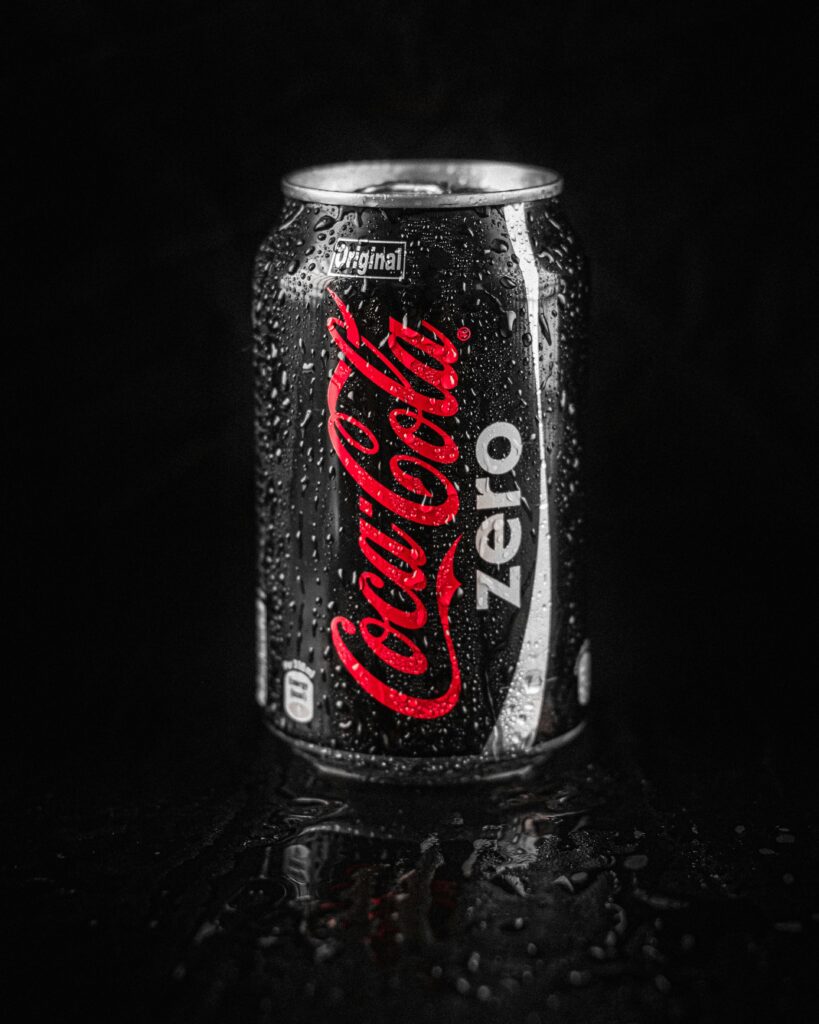Table of Contents
In the world of weight loss, some secrets are too valuable to be kept under wraps. The industry is brimming with diet experts, promising quick results and marketing fad diets. However, does the silver bullet for weight loss exist? As it turns out, much about losing weight is not as straightforward as it might appear. In this article, we’ll uncover some secrets that diet experts might not be too eager to share and help you navigate your journey to manage weight loss more effectively. Understanding these insights can reveal some of the most effective weight loss strategies that go beyond the typical advice.
In addition to traditional methods, incorporating these lesser-known tactics can enhance your approach. By exploring and applying these effective weight loss strategies, you can gain a more comprehensive understanding of how to achieve your goals and sustain a healthier lifestyle.
Not All Calories Are Equal
When you’re attempting to lose fat, calorie counting becomes a daily ritual. However, not all calories are created equal. A calorie from a piece of cake is not the same as one from a carrot. The former is full of sugar and empty calories, while the latter is laden with vital nutrients your body needs. While both might contain the same amount of energy, their effect on your body is vastly different.
Foods like fruits, vegetables, and lean proteins are packed with essential nutrients and take longer to digest. As a result, they keep you feeling full for a longer period and help to control your appetite. On the other hand, processed foods are often high in calories and low in nutrients. They are digested quickly, causing spikes in blood sugar levels and leaving you feeling hungry soon after.
Therefore, in your quest to manage weight loss, consider the quality of your calories rather than just the quantity. Choosing whole foods over processed ones can make a significant difference in your weight loss journey and are effective weight loss strategies.
The Role of Exercise in Weight Loss

Exercise is a crucial part of a healthy lifestyle. It has numerous benefits, from improved mood and energy levels to better sleep and overall well-being. However, when it comes to effective weight loss strategies, the role of exercise is often overstated. You can’t punch out a poor diet at the gym.
Sure, exercise can help burn a few extra calories and can play a supportive role in weight loss. However, it’s only a slice of the larger weight loss pie. What you eat accounts for the majority of your weight loss success or failure.
Creating a caloric deficit through a well-balanced, low-calorie diet is far more efficient than trying to burn off excess calories through exercise. This is not to say that exercise is not important, but rather, its role in weight loss is secondary to diet.
Consider this: it takes about an hour of brisk walking to burn around 200 calories—roughly equivalent to a chocolate chip cookie. Instead of burning off the cookie through hours of exercise, it’s more effective to not eat that cookie in the first place. Effective weight loss strategies often prioritize dietary adjustments over exercise alone.
Click Here If you want to learn more about exercises for effective weight loss strategies
Understanding Metabolism Variability
The concept of metabolism seems simple enough: it’s the rate at which your body burns calories. However, metabolism is a complex process that varies greatly from person to person.
- Some people are blessed with a speedy metabolism. They burn calories faster and can eat more without gaining weight.
- Others have a slower metabolism. They burn calories at a more sluggish pace and can gain weight more easily.
- Factors such as age, muscle mass, and genetics can influence your metabolic rate.
Understanding this variability is crucial for managing weight loss. While you can’t change your genetics or age, you can increase your muscle mass through strength training, which can help boost your metabolism. Tailoring your approach to fit your metabolic profile is one of the most effective weight loss strategies.
Impact of Stress on Weight Loss
Stress and Weight Gain
When you’re stressed, your body releases a hormone called cortisol. This hormone can increase your appetite, making you crave comfort food. It can also cause your body to store fat, particularly in the belly area.
Stress and Poor Food Choices
Furthermore, stress can lead to poor food choices. Under stress, you are more likely to reach for junk food instead of making healthy choices. These unhealthy foods can lead to weight gain and hamper your weight loss efforts.
Stress and Exercise
Chronic stress may also affect your workout routine. You might skip your workout due to feeling overwhelmed, or you may not be able to push yourself as hard during your exercise sessions.
Stress Management for Weight Loss
For these reasons, managing stress is a crucial part of any weight loss program. Practices such as yoga, meditation, and deep breathing can help keep stress at bay and aid your weight loss journey. Incorporating stress management techniques is among the most effective weight loss strategies.
Importance of Sleep for Weight Management

Sleep is often overlooked in weight loss programs. However, getting enough sleep is as essential to your weight loss efforts as diet and exercise. Lack of sleep can wreak havoc on your metabolism, making it harder for you to lose weight.
Poor sleep can also derail your diet. When you’re tired, your brain’s reward centers are more likely to crave high-calorie foods. Additionally, lack of sleep can mess with your hunger hormones, causing you to feel hungrier and less satisfied after eating.
Furthermore, regular sleep deprivation can sap your energy, making it less likely that you’ll exercise the next day. And skipping your workout means burning fewer calories, making it even more challenging to lose weight.
In short, sufficient sleep is an essential, yet often underrated, factor in weight loss. Prioritizing good sleep hygiene can significantly boost your weight loss efforts and one of the effective weight loss strategies.
Deception of Diet Drinks and Low-Calorie Foods

Weight loss isn’t just about cutting calories. It’s also about the quality of those calories. Here’s why:
Diet drinks might seem like a healthy alternative to sugary drinks, but they can lead to weight gain. Studies have found that artificial sweeteners can stimulate your appetite and sugar cravings, leading to overeating later.
Low-calorie foods are often highly processed and can lack essential nutrients. They can also leave you feeling unsatisfied, causing you to eat more.
Foods labeled “fat-free” or “low-fat” can be high in sugar and empty calories. They might be low in fat, but they’re not necessarily low in calories.
When trying to lose weight, don’t be fooled by the marketing hype. Stick to whole, nutrient-dense foods and drink plenty of water instead. Choosing whole foods over marketed diet products is one of the most effective weight loss strategies.
Dealing with Weight Loss Plateaus
Weight loss is rarely a straight line. It’s more like a winding road with ups and downs, twists and turns. And sometimes, you hit a plateau. A weight loss plateau is a period where your weight remains the same despite doing everything right.
But here’s the thing: plateaus are a normal part of the weight loss process. They can be incredibly frustrating, but they’re not insurmountable. Often, a plateau simply means that it’s time to shake things up.
You might need to adjust your calorie intake, switch up your exercise routine, or make other lifestyle changes. Remember, weight loss is a journey, not a race. Be patient, stay consistent, and keep pushing forward. Adapting and being flexible with your approach is one of the effective weight loss strategies.
Significance of Gut Health in Weight Management
Your gut, also known as your digestive system, plays a more significant role in weight management than you might realize. A healthy gut is like a well-oiled machine, efficiently breaking down food and absorbing nutrients.
However, an unhealthy gut can disrupt these processes, making it harder to lose weight. A diet high in unhealthy, processed foods can damage your gut microbiome, leading to poor digestion and weight gain.
On the other hand, a diet rich in fiber, probiotics, and prebiotics can help maintain a healthy gut. These foods feed the good bacteria in your gut, supporting digestion and weight management. Maintaining good gut health is one of the most effective weight loss strategies.
To illustrate the importance of gut health, consider the table below:
| Foods for Gut Health | Benefits |
| Fiber-rich foods (fruits, vegetables, whole grains) | Feed the good bacteria, support bowel regularity |
| Probiotic foods (yogurt, kefir, sauerkraut) | Add beneficial bacteria to your gut |
| Prebiotic foods (garlic, onions, bananas) | Act as fuel for the beneficial bacteria |
Incorporating these gut-friendly foods into your diet can help you manage your weight more effectively.
Emphasizing Sustainable Lifestyle Changes
In the world of weight loss, quick fixes and fad diets are increasingly popular. They promise rapid results with minimal effort, but these programs are often unsustainable and can lead to weight regain. The truth is, there’s no magic pill for weight loss. Instead, achieving lasting success relies on adopting effective weight loss strategies that involve long-term lifestyle changes.
Sustainable weight loss requires consistent healthy choices and habits. Focus on making small but meaningful adjustments to your lifestyle. Embrace a balanced, nutrient-rich diet, engage in regular exercise, prioritize sufficient sleep, and manage stress effectively. These strategies are crucial components of effective weight loss strategies and will help you achieve and maintain your weight loss goals over time.
Remember, weight loss is a journey, not a destination. Although progress might be slower than you’d like, the results are worth the effort. By following these proven effective weight loss strategies, you’re one step closer to reaching your goals and maintaining a healthier lifestyle for the long term.
Conclusion
Effective weight loss strategies are crucial for achieving long-term success in your weight loss journey. By incorporating these effective weight loss strategies into your daily routine, you can maximize your results and maintain a healthy weight for years to come. From following a balanced and nutritious diet to engaging in regular physical activity, there are numerous ways to tackle weight loss effectively.
Additionally, setting realistic goals and tracking your progress can help keep you motivated along the way. It’s to remember that everyone’s weight loss journey is unique, so finding the effective weight loss strategies that work best for you is key. With dedication and perseverance, you can implement effective weight loss strategies into your lifestyle and achieve your desired results.
Read Also: Ketogenic Diet: The Keto Transformation and 8 Life-Changing Benefits




